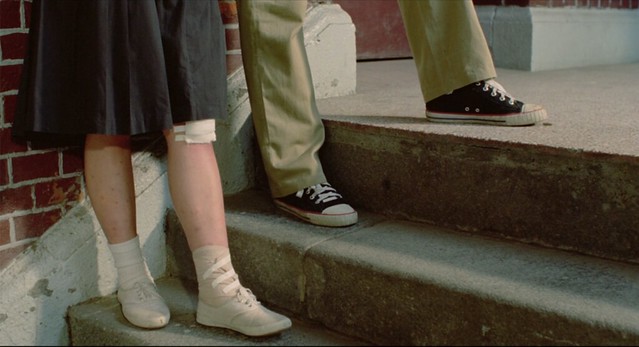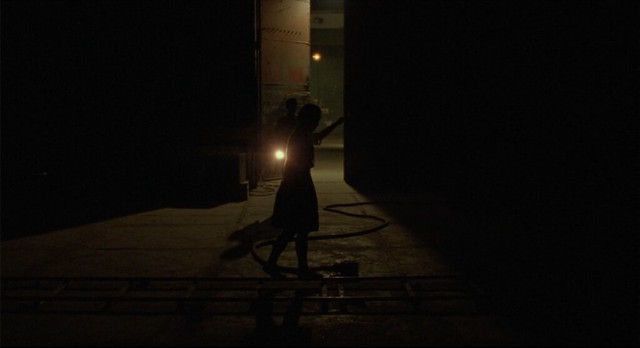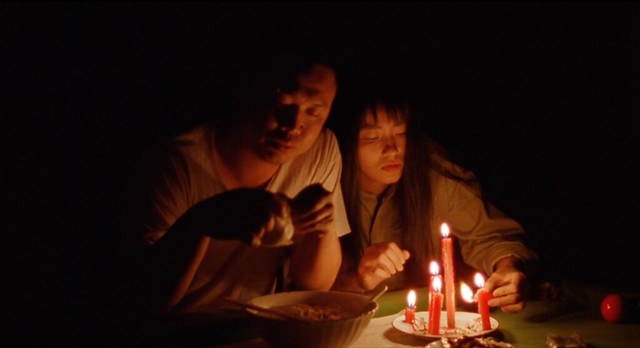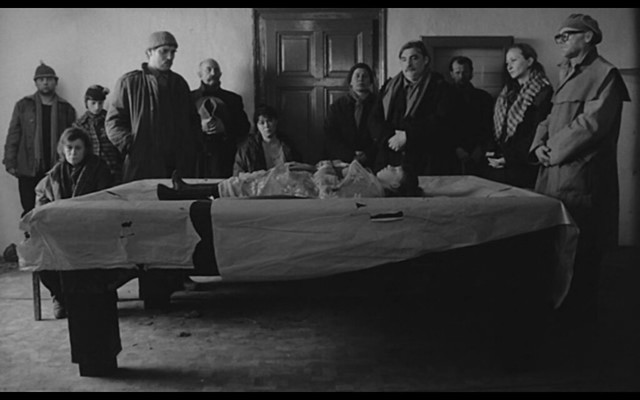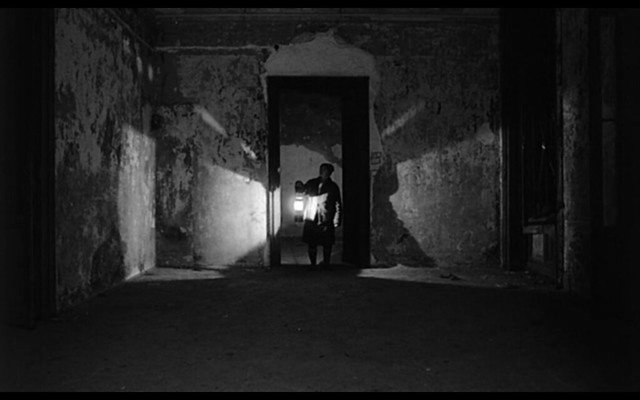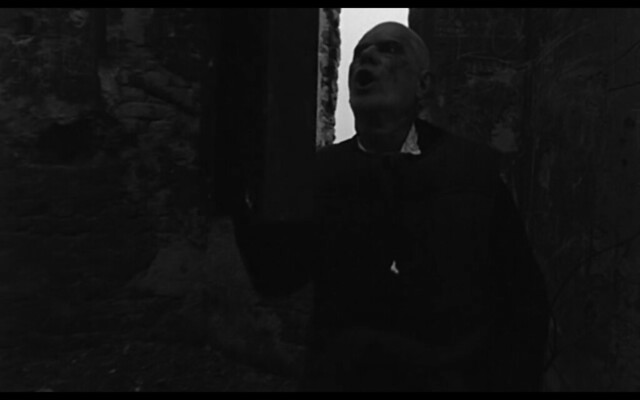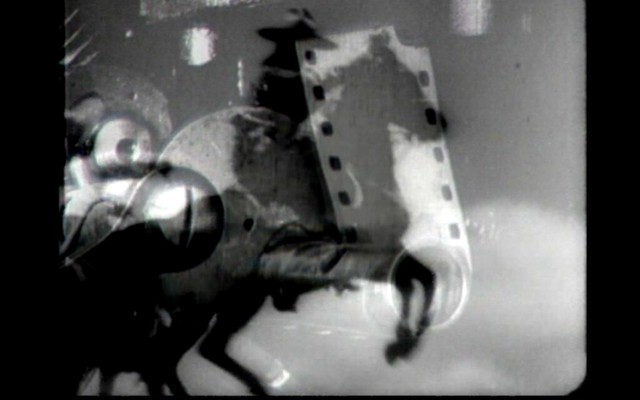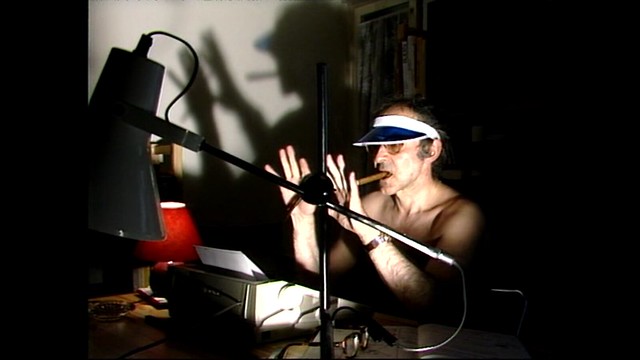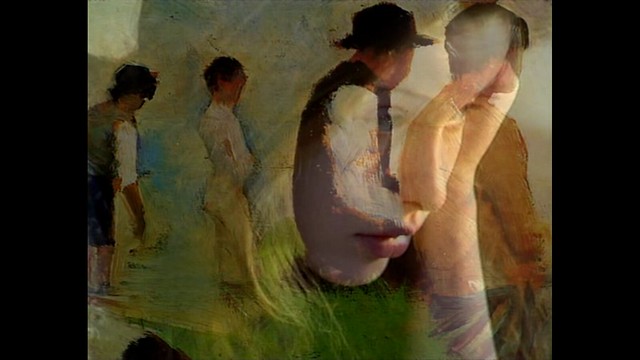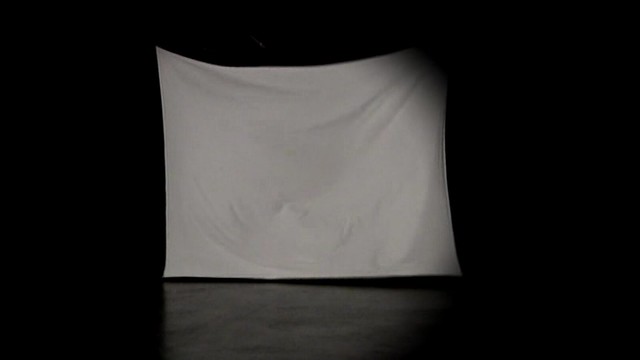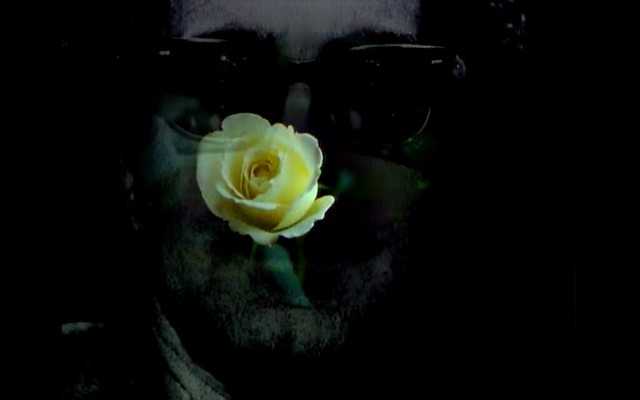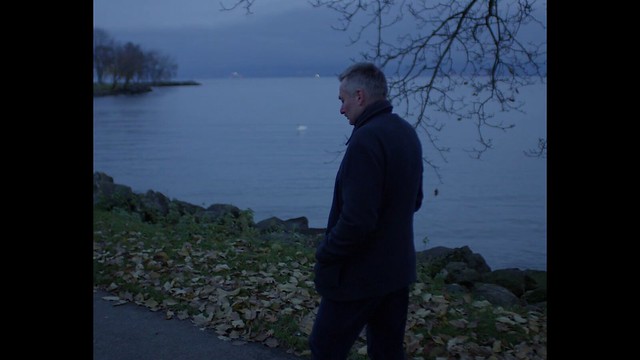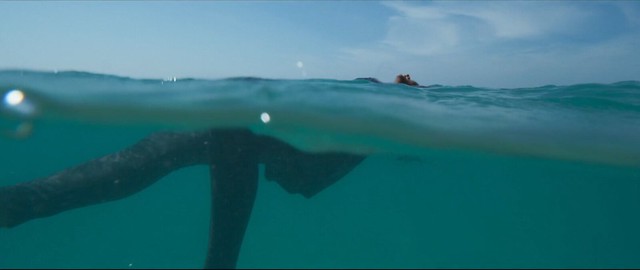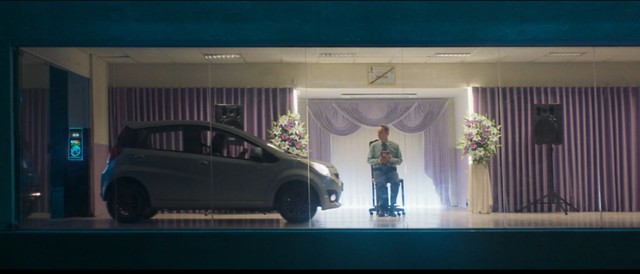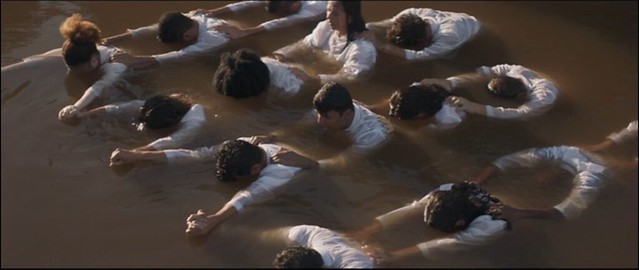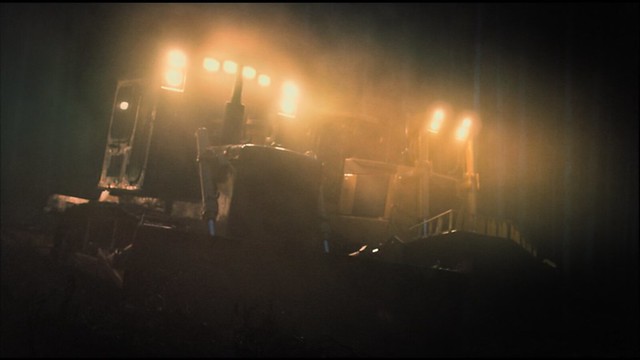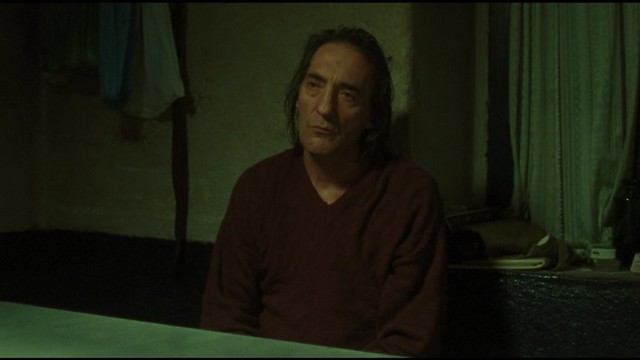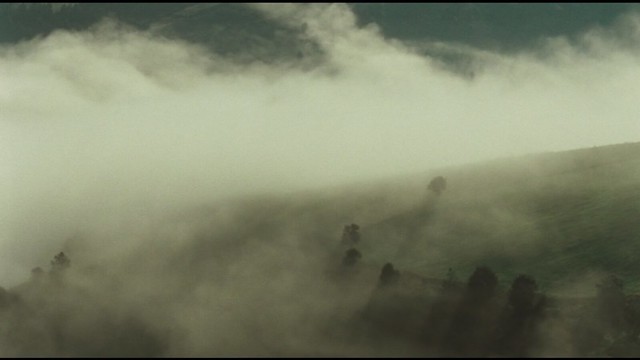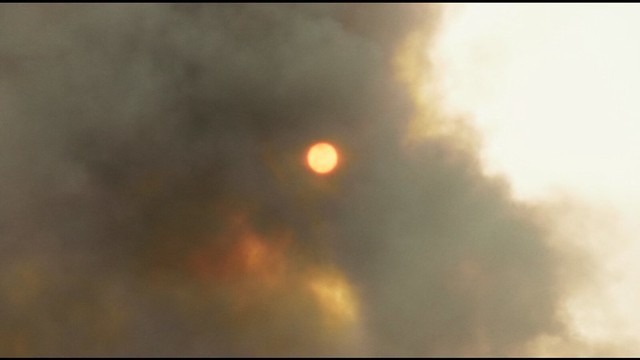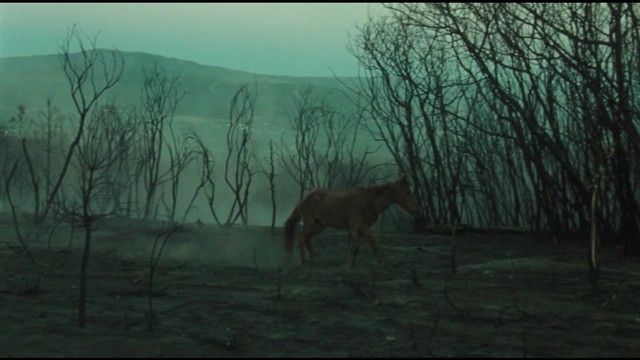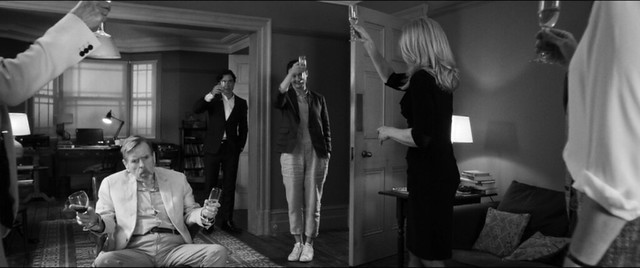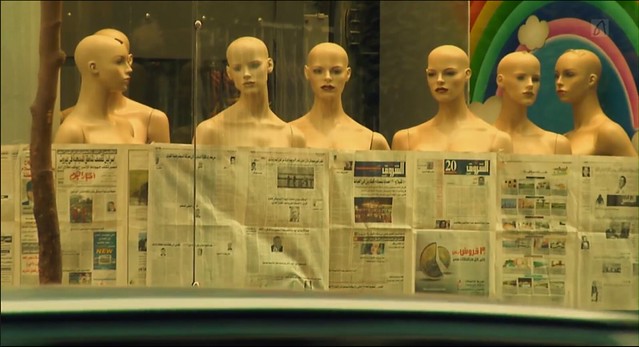
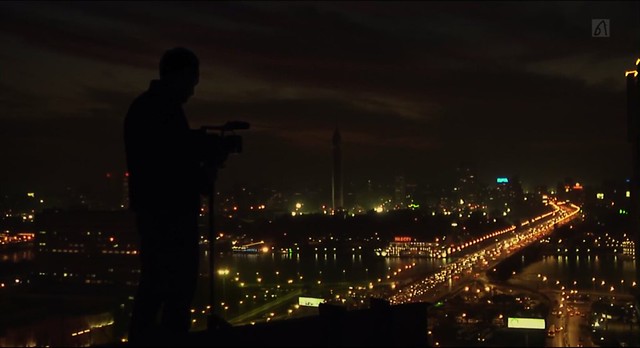

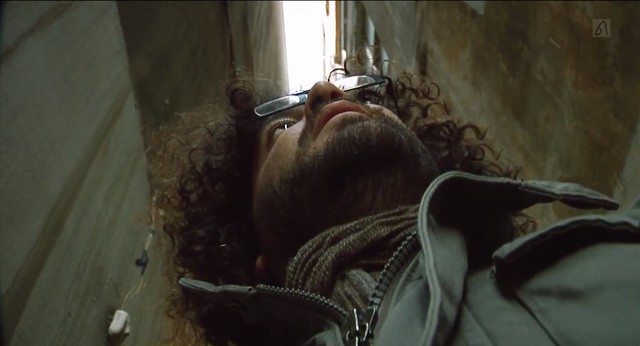
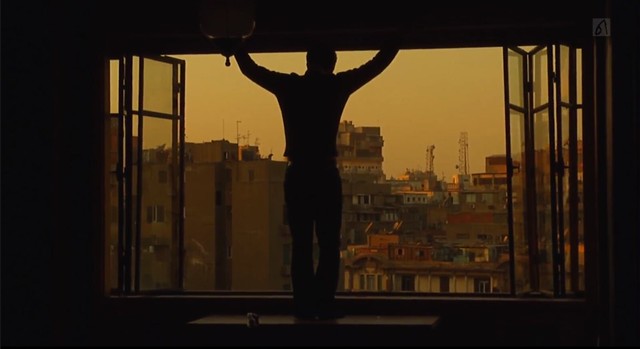
It's 2009. This is before Arab Spring, pre-Tahrir Square Cairo. Mubarak is still in power, but there is a change in the air in a largely secular city of nearly million. A filmmaker Khalid (Khalid Abdala) seems to be making a personal documentary. With a handheld camera, he is seen documenting and editing various footage - a teacher in a theater group, his ailing mother in the hospital, his friends, and the daily hustle and bustle of the city. It coincides with him searching for a flat because he needs to move out of the place he shared with Laila (Laila Samy), his ex-lover, who makes frequent appearances on those tapes.
His childhood friends, one from Beirut, one from Bagdad and one from Berlin, are in the city for a conference and they exchange their perspectives. They make a pact that they will exchange their footage. Khalid is having a hard time finding a new space and also working on his films leaving his real estate broker and his editor equally frustrated.
In the mean time, the world is changing before his eyes. The mannequins on storefront display with western style clothes to bare with newspaper covered to the head to toe black hijabs. Daily street demonstrations with nervous looking cops in riot gear watching them contrasts with government propaganda on the radio blaring in taxi cabs. The news of heated soccer matches between neighboring countries add to the general fervor in the streets.
I remember seeing a film Microphone by Ahmad Abdalla which was a love letter to Alexandria in 2010. I remember how vibrant and optimistic the film was and how devastating to see what unfolded in Egypt right after. In the Last Days of the City, captured in real time by El Said, but released in 2016, is a lyrical, contemplative time capsule across the Arab world that is at once personal, fleeting and heart breaking in retrospect.
This film was recommended by Hany Osman. Thank you Hany.
His childhood friends, one from Beirut, one from Bagdad and one from Berlin, are in the city for a conference and they exchange their perspectives. They make a pact that they will exchange their footage. Khalid is having a hard time finding a new space and also working on his films leaving his real estate broker and his editor equally frustrated.
In the mean time, the world is changing before his eyes. The mannequins on storefront display with western style clothes to bare with newspaper covered to the head to toe black hijabs. Daily street demonstrations with nervous looking cops in riot gear watching them contrasts with government propaganda on the radio blaring in taxi cabs. The news of heated soccer matches between neighboring countries add to the general fervor in the streets.
I remember seeing a film Microphone by Ahmad Abdalla which was a love letter to Alexandria in 2010. I remember how vibrant and optimistic the film was and how devastating to see what unfolded in Egypt right after. In the Last Days of the City, captured in real time by El Said, but released in 2016, is a lyrical, contemplative time capsule across the Arab world that is at once personal, fleeting and heart breaking in retrospect.
This film was recommended by Hany Osman. Thank you Hany.

